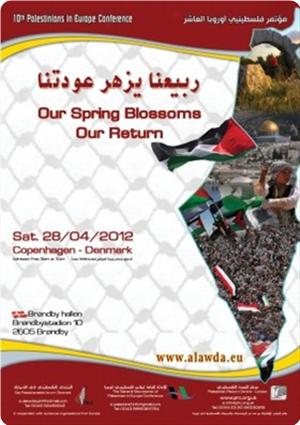1) The ITIC analyses ‘Hamas Exploitation of Hospitals for Military Terrorist Purposes’.
“It was not the first time the terrorist organizations in the Gaza Strip, especially Hamas, had been exposed as exploiting hospitals and other medical facilities for military-terrorist purposed. They knew the IDF would not attack hospitals, which provided their military terrorist facilities with a kind of immunity. For the same reason, they exploit ambulances and vehicles belonging to humanitarian organizations for the transport of terrorist operatives and weapons from place to place. During Operation Protective Edge (2014) and Operation Cast Lead (2008-2009) there was evidence that hospitals, including Shifa Hospital, were exploited by Hamas for military-terrorist activities.”
2) The FDD reports the imposition of new sanctions on Hamas officials by the US and the UK:
“The United States and the United Kingdom on December 13 jointly sanctioned eight Hamas finance officials and representatives for advancing the group’s violent agenda. The targets include three Turkey-based Hamas operatives, reflecting Ankara’s longstanding role in harboring Hamas’s leadership and facilitating their malign conduct.”
3) At the Moshe Dayan Center, Michalis Saris discusses ‘Turkey’s regional policy in the shadow of the Gaza War’.
“…the October 7 terrorist attack by Hamas and the Israeli declaration of war on Hamas and its partners in the Gaza Strip shifted Ankara’s attention toward the dramatic events that were unfolding at the heart of the Middle East.
Turkey’s position in the region is currently based on the implementation of a two-sided regional policy. One side is the long-term policy in north Syria and Iraq, characterized by a perpetual low-intensity conflict with the Kurdish forces of the People’s Protection Units (YPG) and the Kurdistan Worker’s Party (PKK). The other side focuses on the wider Middle East, and is shaped by multilateral diplomatic negotiations and a series of economic deals. However, both policy aspects are influenced, in different degrees, by Erdoğan’s domestic agenda, and also by the abrupt geopolitical convulsions of the region.”
4) The Jewish Insider carries an interview with Sarit Zehavi of the Alma Research and Education Center about the situation on Israel’s northern border.
“Zehavi, the Alma founder, is not opposed to diplomatic efforts, but she said that basing them on U.N. Security Council Resolution 1701 is “very dangerous.”
The resolution “is not really a system that can bring security to the residents of northern Israel and southern Lebanon,” she said. “It’s not clear from the resolution who is supposed to enforce it; Israel says it’s UNIFIL and the rest of the world says it’s the Lebanese Army. It’s worded problematically and everyone reads it differently…The Lebanese Army doesn’t enforce it and UNIFIL doesn’t help. That’s the situation on the ground.”
“There is no functioning state in Lebanon to enforce it. Iranians are everywhere and Hezbollah is everywhere, in the institutions of the state, controlling the borders and the airport,” she added.”
5) At WINEP, Michael Knights explains ‘How Yemen’s “Southern Hezbollah” Could Change Iran’s Deterrent Calculus’.
“Since October 27, about a week after the Houthis started their military strikes against Israel, the Houthis have launched three medium-range ballistic missiles (MRBMs) at Israel, something no enemy has done since Iraqi leader Saddam Hussein fired Scud missiles at Israel in 1991, and something that Iran itself has never done. The Houthis have also launched at least eight salvos of cruise missiles and long-range explosive drones at Israel, focused on the southern port of Eilat. One U.S. military MQ-9 Reaper drone has been shot down by the Houthis during the crisis, and numerous Houthi missiles and drones have been routed near U.S. Navy vessels.”
6) At Unherd, Yehudah Mirsky discusses how ‘Human rights died in Gaza’.
“Sadly, it is hard to escape the conclusion that the manifest failures of the human rights framework as we know it today, and its grotesque contributions to the evil it is meant to fight, are not a bug of the system, but a feature. For decades in the Middle East, the UN’s countless Declarations, Covenants, Reports, Commissions and disproportionate denunciations of Israel did nothing to stem the chain of conflicts, cruelties and injustices that led to the horrific massacres of October 7, the subsequent flattening of much of Gaza, with hundreds of thousands of people displaced and innocent hostages buried alive in tunnels. Indescribable butcheries and tortures, and even documented gang rapes, were met by UN bodies, human rights NGOs and women’s organisations with thunderous silence. It took nearly two months for UN Women to even acknowledge these horrors at all.”





